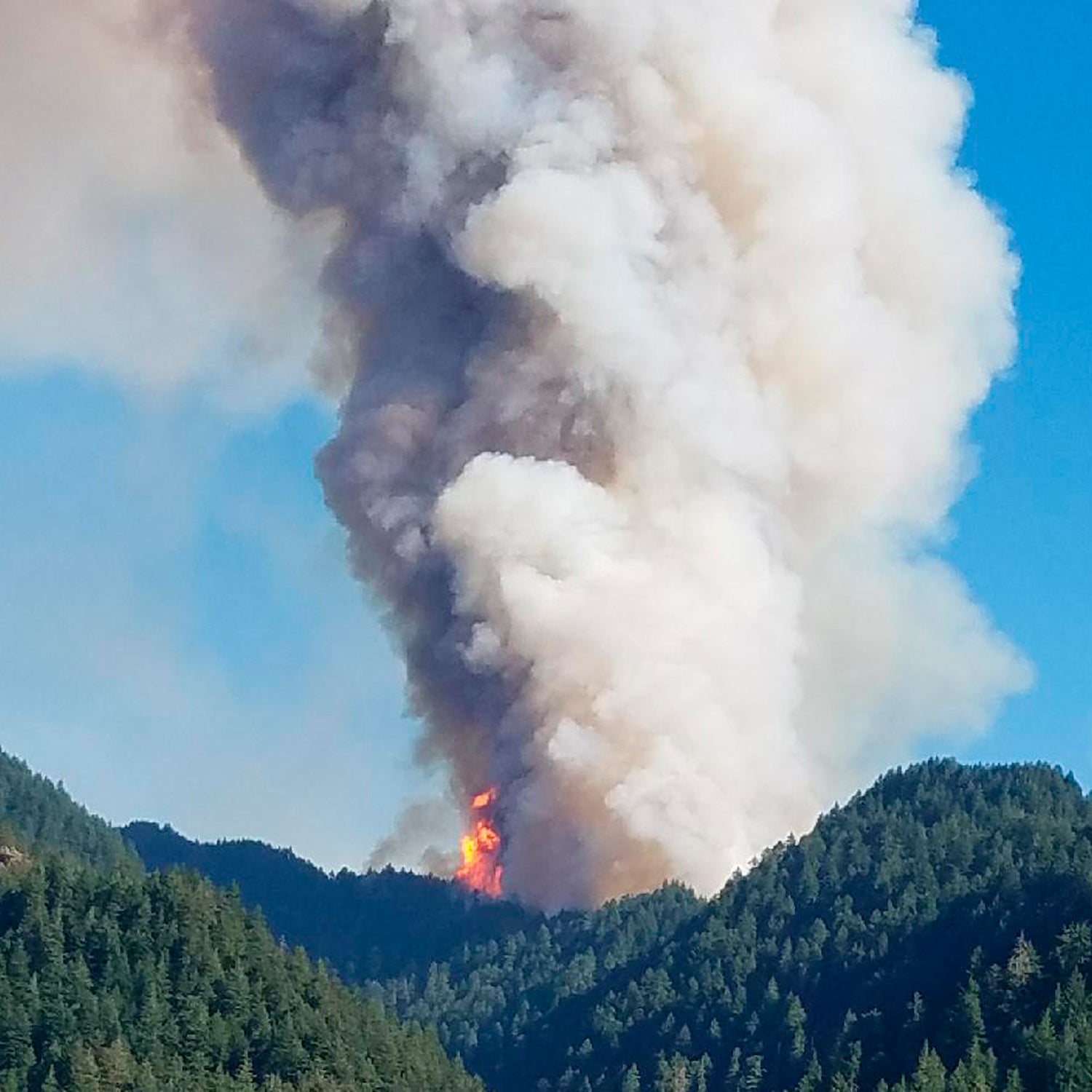Vast and often remote, public land makes a good setting for youthful mischief. A teenager in possession of fireworks and boredom is wont to ditch city limits, drive beyond the reach of law enforcement, and do what teenagers do.
That’s what happened on September 2, 2017, when a 15-year-old known in Oregon court documents only as “A.B.” lobbed a smoke bomb into Eagle Creek Canyon, located in Mount Hood National Forest. It wasn’t the smartest thing to do, but it could have easily ended harmlessly: The firework falls into the creek; kids laugh and drive home. But on this particular day, the fireworks ignited the Eagle Creek Fire, which swelled to 48,000 acres. Ash from the smoke spread nearly to the Canadian border, and the costs associated with fighting the blaze reached .
On Monday, a judge ruled that the teen, whose name has been withheld because of his age, should pay . It’s an enormous penalty, one that Hood River County Circuit Judge John A. Olson acknowledged the teen can’t possibly pay. Instead, the judge said that if A.B. completes 1,900 hours of community service and serves five years probation, he’ll be eligible to stop making payments after ten years.
Obviously, what the kid did was stupid—there was a burn ban in effect at the time. But does the punishment fit the crime?
In Case You Forgot…
It was a busy fire season last year, so you’d be forgiven if you forgot this one. A burn ban was in effect last summer in Mount Hood. Conflagrations are rare in the Columbia River Gorge, but a dry summer combined with high winds turned the Eagle Creek Fire into an expensive and dangerous task for firefighters.
The surrounding stretch of Interstate 84, the main east–west highway out of Portland, was closed for ten days. Numerous hiking trails were closed, and nearby tourist towns were devoid of visitors during what is normally the busiest season. The iconic Multnomah Falls Lodge was nearly destroyed. No fatalities resulted, but by the fire. It took nearly three months to fully contain the blaze.
Cruel and Unusual Punishment?
In a February trial, the teenager admitted to starting the fire and pleaded guilty to charges of burning public and private property, depositing burning material on forest land, second-degree criminal mischief, and endangering another hiker.
The teen’s attorneys argued the fine was exorbitant and even against Oregon law. They called it “cruel and unusual punishment.” But the judge wasn’t having it. He said it was “clearly proportionate to the offense because it does not exceed the financial damages caused by the youth.”
Is it cruel and unusual? Individuals starting forest fires is nothing new. In addition to teenage rabble-rousing, camping and yield plenty of blazes every year, and the required restitution usually pales to the actual damages. But the sum charged in the Eagle Creek case is unusually high. Other minors who have started fires were required to pay no more than , according to a roundup of such cases by Oregon Public Broadcasting. The closest fine of this magnitude I could find was of an Arizona man who, in 2002, was ordered to pay $28 million for his role in starting a 469,000-acre blaze. (A seasonal firefighter, he started the fire to .) That’s about $60 an acre.
A.B.’s per-acre bill? $762.
How Much Is Fair?
Historically, judges have looked at people who start fires differently than companies who start fires—even if they just made a mistake. For example, a 2007 blaze ignited by a power line has cost San Diego Gas and Electric $2.4 billion in settlements. But once a party, be it a corporation or person, is determined liable for causing a wildfire, the ultimate complication arises: How much must they pay?
One tricky part of this calculation is that while a person may have started a fire, they don’t play an active role in trying to put it out. That may seem like an odd point to consider, but, in fact, some people have by arguing that the government was inept at extinguishing fires they started. There is also the argument being made by California’s Pacific Gas and Electric, the utility being investigated for possibly starting the wine-country fire that killed more than 40 people. It says the massive and fatal fire was a “new normal” caused by climate change.
What does all this mean for a 15-year-old staring down a $36 million hole? Yes, he did wrong by starting the fire, and he should face proportionate consequences. But he’ll also certainly be paying for some actions he played no role in. This teenager had nothing to do with past decades of fire suppression that choked the understory with shrubs and small trees, and he has played a minuscule role in the climate change that dried up all that vegetation. Tweak those variables and his firework might have fizzled.
It’s easier to blame companies for enormous, life-threatening fires, but saddling a minor with so much liability forces reconsideration. Many of us could have been in that situation—hell, I’ve shot Roman candles into sagebrush plains loaded with cheatgrass that’s just waiting to burn. But I didn’t think of that when I was 15.
According to one study, humans cause , and our penchant for greenhouse gases has . We need to recognize this, of course, and be more careful outside. But occasionally a teenager is going to break the rules. Should they be fully responsible for our collective misdeeds?


